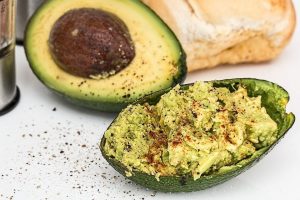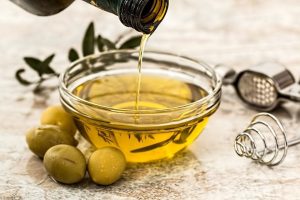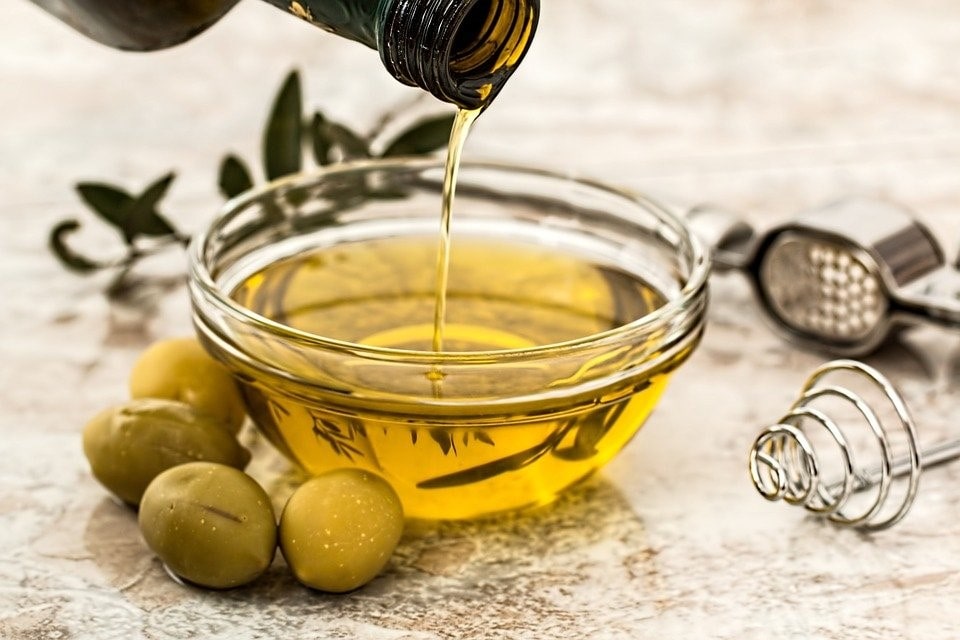According to a 2020 study, about 24.9% of patients with heart failure hospitalised with COVID-19 lost their lives. [13]
Because this number is shocking, prevention, early detection and treatment of heart diseases are crucial.
So, do you have a heart problem that you’re not aware of?
- Do you have any heart palpitations, shortness of breath, heart discomfort and feel like fainting sometimes?
- Are you struggling with light headedness, fatigue and feel that your heart cause you a skipped beat sometimes?
- Have you or anyone in your family been diagnosed with any type of cardiovascular disorders?
- Are you looking for the best cardiac rehabilitation exercises to prevent and reverse heart disease?
If you have been diagnosed with a heart disease, or if you are at risk for one, you need to carefully select the type of fats you include in your diet.
Medication, cardiac rehabilitation exercises and lifestyle are very important in cardiac rehabilitation. However, they are not enough.
In addition to exercise healthy heart can be achieved by modifying the way you consume fats. This is a crucial part of your cardiac rehabilitation programme.
In fact, all types of fats are not as harmful as you think.
- Did you know that different foods have a different metabolic effect and at the end they will produce a completely different biological effect?
That’s why it’s important to watch what you eat.
To understand this, you need to have a closer look at how fats circulate in your blood.

Blood Cholesterol: Is It A Big Deal?
Everyone is spreading the word that: with the proper diet and exercise healthy heart can be just a step away from you.
Also, according to expert tips from nutritionist heart disease can be prevented if you control your blood cholesterol.
- So, what is cholesterol in your blood?
Cholesterol is a waxy substance that everyone recognises as “enemy”.
Yet, nutritionist heart disease experts and dieticians do not completely agree to this recognition.
Cholesterol is inherently made by your liver because it is important for countless processes in your body. [1],[2]
Can you believe that the cholesterol you have always been avoiding plays a very essential role in your body?
Have you ever wondered what cholesterol is important for?
Here are some unbelievable facts about it:
- Building Cells
Your cells need cholesterol in addition to fatty acids and phospholipids to keep the membrane (the sac that helps contain the cell organelles within the cell) intact. These substances also help your cells maintain their flexibility and shape. [1], [2]
- Forming Important Substances
Cholesterol helps forming hormones (e.g., adrenal hormones, testosterone… etc.) and vitamins (e.g., Vitamin D) that are necessary for your body function. [1], [2]
- Helping your body heal
They say time heals.
But time is not everything.
With the help of cholesterol and other components circulating in your blood (e.g., calcium and collagen), your body is able to heal wounds and injuries by forming scar tissues on the injured site. [1]
- Digesting Fat
Cholesterol is converted into bile, a greenish fluid that is formed in the liver and stored in the gallbladder.
It is required to break and emulsify the food we eat and help making fats easier to digest by the body enzymes.
In addition, it plays an important role in absorption of fats and fat-soluble vitamins (i.e. A,D,E and K). [1], [2]
- Proper Brain Function
Cholesterol is known to help proper brain development in infants.
In addition, it is important for the brain and nerves to function properly in adults
It was also found to help seniors with declining memory. [1], [2]
So, your brain needs cholesterol in all stages of life!
So, Is Cholesterol Good?
Although the several functions of cholesterol make it look like a life-saver! This is not always the case.
Whether cholesterol will be a help or a hindrance depends on its type.
As a matter of fact, cholesterol is a fatty substance, it does not mix with water and travel through your blood stream like most blood components do.
Instead, it binds with a protein that carries it around forming a substance known as lipo-protein.
Cholesterol is transferred by this means in the form of:
- Low-Density Lipoprotein
Also known as LDL and it is usually demonised and referred to as “bad” cholesterol.
Its main function is to transfer cholesterol from the liver and intestine to the cell where it can perform its functions.
When your body has too much LDL cholesterol, the LDL cholesterol can build up on the walls of your blood vessels.
As a result, the insides of the vessels narrow, blocking blood flow to and from your heart and other organs.
When blood flow to the heart is compromised, it can cause angina (chest pain) or a heart attack [3],[6]
- High-Density lipoprotein
This type of cholesterol is usually referred to as “good” cholesterol because it carries the cholesterol from the cells and tissues back to the liver where it can be excreted as bile and led out of the body with waste.
So, is this type of cholesterol helpful for your heart-health?
The answer is YES!
With this unique function, HDLs decrease the amount of cholesterol in blood and decrease your risk for heart diseases and stroke. [3],[6]
- Triglycerides
Triglycerides are how your body stores excess calories that are left unused before they get stored in fat cells.
They are called triglycerides because each molecule contains three fatty acids.
Usually, we can get triglycerides from two sources —the food we eat and the liver.
Do you have high triglycerides in your lipid profile?
This might be due to:
- Genetic factors
- Diabetes
- Thyroid problems
- Kidney disease
- Some medicines or
- Your diet [11]

Keep it Under Control
- I’m not overweight, can I still be at risk?
Well, you don’t need to be obese to have a bad lipid profile.
High lipids in your blood are more associated with belly fat.
In some cases, people of ideal body weight can also have a poor lipid profile.
Now that you’ve learnt the good and bad sides of fat, you need to know how to prevent accumulation of bad lipids in your blood in order to reduce your risk for heart diseases.
Or if you already have a problem with your heart, you can still:
- Improve your lipid profile,
- Promote your health condition and
- Prevent further complications.
Having a heart disease might be one of your biggest concerns. Get your questions answered by speaking to Jazz Alessi, expert cardiac rehabilitation specialist who will give you the customised diet and exercise plans you’re looking for.
Request a FREE CONSULTATION NOW!
Fats in Your Diet: Tasty, But Risky!
Everything about consuming fat has its own pros and cons.
This is why you need to consume fats in moderation in terms of type and amount.
Watch ‘What’ You Eat
The type of fatty food you decide to eat plays an important role in determining what happens next.
In fact, fats we consume are basically made of smaller units called fatty acids (FA). Fats therefore differ according to:
- The number of FA
- The type of FA
- The bonds (i.e., the way fatty acids are joined together)
Mainly, there are 2 types of fats:
- Saturated fat
Saturated fats are the type of fats you need to avoid.
It has been proven that saturated fats are responsible for increasing bad cholesterol (LDLs) in the blood.
It has also been found to increase your risk for heart diseases. [3],[4],[5]
According to The American Heart Association’s (AHA) recommendations, only 5% to 6% of calories in an adult’s diet should come from saturated fat.
For example, if your body needs about 2,000 calories a day, no more than 120 of them should come from saturated fat.
This means only 13 grams! [4]
However, in some individuals even such small amount might be tricky.
Examples of saturated fats are: Full-fat dairy products, biscuits, cakes and pastries, savoury snacks, chocolate, butter, coconut milk/cream, and coconut and palm oils. [3], [4], [7]
Not sure what to eat? Jazz Alessi, a long-term Harley Street nutrition expert and an elite personal trainer in London will help you get your questions answered.
REQUEST A FREE CONSULTATION NOW!- Unsaturated fat
Unsaturated fatty acids can be divided to mono- and polyunsaturated.
Both help reduce LDLs (bad cholesterol) levels in your blood; which means it can lower your risk of heart disease and stroke Because it:
- Has less atherogenic effects. So, it reduces risk for atherosclerosis.
- Has a faster clearance rate after meals.
- Reduces fasting triglyceride levels.
- Reduces coagulation factors (this means less risk of thrombus formation).
- Increases fat oxidation rate (greater fat burning and less fat storage). [5]
In addition, they contain essential nutrients that your body needs (e.g. Vitamin E and anti-oxidants) [4]
- What are some examples of foods containing unsaturated fats?
Monounsaturated fatty acids (MUFA): like olive oil, nuts, avocados
Polyunsaturated fatty acid (PUFA): most plant oils (rapeseed oil, sunflower oil), nuts and seeds [3], [4]
- Trans-Fats
Trans fats are also type of unsaturated fats.
However, they are considered bad for your health because they increase the number of LDLs and decrease the amount of HDLs in your blood.
In this way, they can increase your risk of heart disease if you consume too much of them.
Naturally, trans-fats are present in animal sources.
But they can also be present in vegetable oils that are partially hydrogenated like corn oil and soybean oil, and sunflower oil if it is referred to as partially hydrogenated on the label.[3]
- Are you wondering what to eat and what to avoid?
- Can you be 100% sure that specific foods do not contain saturated fats?
In real life, you cannot simply assume that a specific food contains no saturated fats at all.
In fact, all fats contain both saturated and unsaturated fats in different proportions.
However, foods are sometimes referred to as ‘saturated’ or ‘unsaturated’ according to the majority of fatty acids they contain.
For example, vegetable oils are described as ‘unsaturated fats’ because they have more unsaturated than saturated fatty acids. [3]
- Are you sometimes feeling frustrated because you are unsure what to eat?
- Want to learn how to prepare foods and how to shop amazing foods for your health?
- If you have any questions about what foods are best for your goals or suffering from heart problems and need customised advice, request a FREE CONSULTATION directly with Jazz Alessi.

Not Only ‘What’, but also ‘How Much’ You Eat
Eating too much of healthy fat is not the answer.
Did you know that all types of fat contain 9 calories per gram?
Which is higher energy than that provided by a gram of carbohydrates or proteins, both providing you with just 4 calories per gram. [4]
This means a small bite of a fatty food can help you be more energetic compared to a similar-size bite from a starchy food.
The problem is:
Because fats make food tasty, it is addictive, and it makes it harder to control how much you eat and interferes with your cardiac diet plan.
There is always more urge to eat a cheesy burger or French fries than to have a bowl of fresh salad.
This means you’ll end up eating more than you should, and thus, having more energy than your body actually needs.
As a result, excess energy is stored not only in your fat cells leading to an increase in your weight, but also some of it circulate in your blood as LDL, increasing your risk for atherosclerosis, heart disease and stroke.
- Did you know that according to the Food and Agriculture Organization of the United Nations (FAO), at least 20% of an average adult’s energy intake must come from fats?
This helps you get the essential fatty acids that cannot be produced in the body.
On the other hand, the FAO also recommends taking no more than 30-35% of daily energy from fats for a heart healthy diet. [12]
Which also indicates how dangerous fats can be if consumed in large, uncalculated amounts.

Regular Exercise: Shortcut to A Healthier Heart
No matter if you are at risk for heart disease, or if you’ve already been diagnosed with one.
In addition to a heart healthy diet, a customised exercise programme designed for your very personal can help you in the following ways:
- Prevent Heart diseases
When you exercise, you give yourself protection against heart diseases like coronary artery diseases and heart failure.
Simply, Cardio is the best exercise for heart health because it helps you:
- Keep your coronaries open, healthy and recruit collateral arteries that help delivering oxygen-rich blood to your heart.
- Improve your heart muscle strength
- Improve your heart’s ability to extract and utilise oxygen
- Reduce your resting heart rate and
- Decrease resting blood pressure. Thus, reduce the load on your heart [8]
- Maximise the benefits of your cardiac diet plan
- Reverse risk factors for heart diseases
Heart diseases are not all about the heart itself.
Sometimes, there are other factors that put the heart at more risk.
For example, you’re more at risk of you have one or more of the following:
- Obesity
- Diabetes
- Hypertension (increased blood pressure)
- High lipid profile (high cholesterol, triglycerides and LDLs)
- Smoking
- Sedentary lifestyle
- Stress [8]
GOOD NEWS: Adding customised exercises regularly to a heart healthy diet plan can have this magical effect on your health by slowing down, stopping and even reversing these risk factors. In other words, low intensity exercises, that’s considered the best exercise for heart health can:
- Reduce LDL (bad) cholesterol,
- Increase HDL (good) cholesterol
- Lower high blood pressure
- Prevent and control diabetes.
- Help you lose excess weight or maintain your ideal weight
- Lower your risk of heart disease and complications of already present pathologies [8], [9], [10]
BETTER NEWS: you don’t need to wait for long before you see an effect!
A recent study found that moderate-intensity exercises decreased the level of oxidized LDL by 25 % on the 2nd day! [9]
Do you want to stop or reverse the progression of your heart disease?
It is time to take part in a comprehensive cardiac rehab programme that includes specific types of safe, monitored exercises and a personalised heart healthy diet plan.
Speak to Jazz Alessi, and his team of expert cardiac rehab specialists and find out how you can exercise safely.
Claim Now Your Free Consultation!
Who is Jazz Alessi?
Jazz Alessi is a long-term Harley Street nutritionist and expert personal trainer in London and is working under cardiologist’s supervision.
He uses evidence-based nutrition to create customised, safe cardiac rehabilitation programmes for those who were found eligible by their cardiologists.
Jazz believes that comprehensive rehabilitation plans provide the best individualised results.
So, he designs a closely supervised combination of: a healthy heart-friendly diet, a laser sharp personalised training plan and endless motivation towards a better lifestyle.
References
1. Enig, Mary G., Ph.D., Know Your Fats: The Complete Primer for Understanding the Nutrition of Fats, Oils and Cholesterol, Bethesda Press, (2000) p57
Microsoft Word – The Importance of Cholesterol in the Body.doc (perfectpatients.com)
2. T. Priya, & Maurya, S. & Khan, Kishwar. (2013). Cholesterol: Genetic, Clinical and Natural Implications. Research Journal of Pharmaceutical, Biological and Chemical Sciences.. 4.
(PDF) Cholesterol: Genetic, Clinical and Natural Implications (researchgate.net)
3. Oils and Fats in the Diet: The British Nutrition Foundation 2009
Microsoft Word – Oils QA.doc (nutrition.org.uk)
4. Fats – the American heart Association (AHA)
Fats | American Heart Association
5. DiNicolantonio JJ, O’Keefe JH. Effects of dietary fats on blood lipids: a review of direct comparison trials. Open Heart 2018;5:e000871. doi:10.1136/ openhrt-2018-000871
Effects of dietary fats on blood lipids: a review of direct comparison trials (bmj.com)
6. S. C. Bergheanu, M. C. Bodde, J. W. Jukema. Pathophysiology and treatment of atherosclerosis, Netherlands Heart Journal, 2017, pp. 231-242, Volume 25, Issue 4, DOI: 10.1007/s12471-017-0959-2
Pathophysiology and treatment of atherosclerosis (pdf) | Paperity
7. Food Fact Sheet: Cholesterol – The Association of UK Dietitians https://www.bda.uk.com/resourceDetail/printPdf/?resource=cholesterol Your Guide To Physical Activity And Your Heart – U.S. Department of health and human services – National institutes of health – National heart, lung, and blood institute.
8. Your Guide To Physical Activity And Your Heart – U.S. Department of health and human services – National institutes of health – National heart, lung, and blood institute.
Your Guide to Physical Activity and Your Heart (nih.gov)
9. Vuorimaa, Timo & Ahotupa, Markku & Irjala, K & Vasankari, Tommi. (2005). Acute Prolonged Exercise Reduces Moderately Oxidized LDL in Healthy Men. International journal of sports medicine. 26. 420-5. 10.1055/s-2004-821142.
(PDF) Acute Prolonged Exercise Reduces Moderately Oxidized LDL in Healthy Men (researchgate.net)
10. Hyo-Cheol Lee, Tag Heo : Effects of Exercise Therapy on Blood Lipids of Obese Women Phys. Ther. Sci. 26: 1675–1677, 2014 57ef56d91b94d326c6e9759d3864bb85cd51.pdf (semanticscholar.org)
11. George Yuan, Khalid Z. Al-Shali, Robert A. Hegele : Hyper-triglyceridemia: its etiology, effects and treatment
untitled (cmaj.ca)
12. Fats and fatty acids in human nutrition. Report of an expert consultation. FAO Food Nutr Pap. 2010;91:1-166. PMID: 21812367.
www.fao.org/3/a-i1953e.pdf
13. Jesus Alvarez-Garcia, MD, PhD Samuel Lee, MD Arjun Gupta, MD Matthew Cagliostro et al., (2020): Prognostic Impact of Prior Heart Failure in Patients Hospitalized With COVID-19. J Am Coll Cardiol. 2020 Nov, 76 (20) 2334–2348
https://www.cardiovascularbusiness.com/topics/covid-19/24-heart-failure-patients-covid-19-die-mortality



